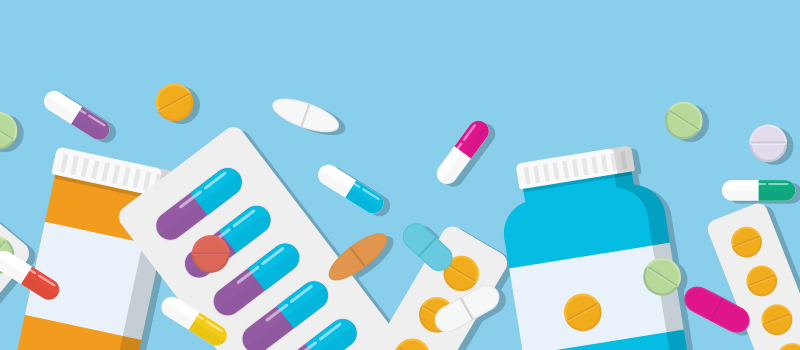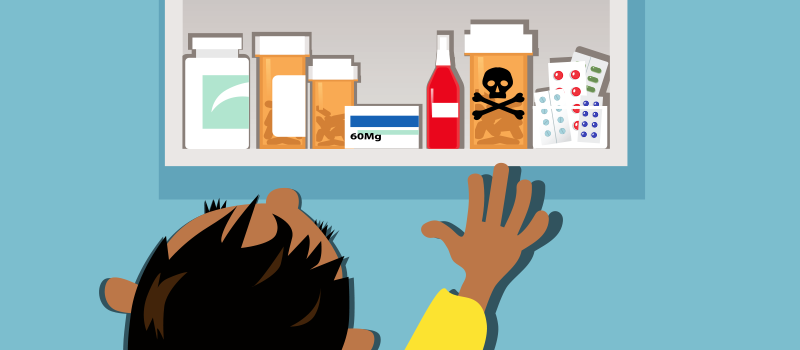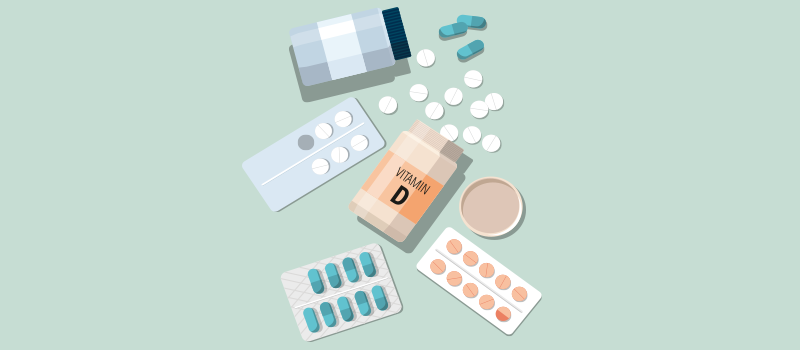What’s the Buzz
The Bee Healthy Blog
Which Medications Are Safe During Pregnancy?

Every 4.5 minutes, a baby is born with a birth defect in the United States—that is, roughly 120,000 babies affected each year[1]. Although the cause is not always thoroughly understood, taking certain medications during pregnancy can increase the chances, especially in the first three months of pregnancy (first trimester) when the baby’s organs are forming. More than 90% of the medications approved by the FDA from 1980 to 2000 had insufficient data regarding their safety during pregnancy. Therefore, pregnant women are typically advised to avoid medications, including prescription and over the counter drugs, especially during early pregnancy. However, if you have chronic diseases like high blood pressure, asthma or diabetes, stopping medications can have harmful effects on the disease control. Please continue reading to learn which prescription medicines are safe for pregnant women in order to help prevent birth defects.
Note: Pregnant women should not stop or start taking any type of medicine that they need without talking with a healthcare provider. Women who plan to become pregnant should discuss the need for any medicine with their healthcare provider before becoming pregnant[1].
Pain-relief Medications
Acetaminophen is the most common pain reliever that doctors recommend for pregnant women. Tylenol®, Extra Strength Tylenol, and Tylenol Cold are the brand names of acetaminophen; both the brand and generic products are available over the counter without a prescription. Some studies have found that about two-thirds of pregnant women in the U.S. take acetaminophen sometime during their nine-month stretch to relieve minor aches, pain, and common cold symptoms.
Just steer clear of acetaminophen if you’re allergic to it, if you have liver problems, or if your doctor or healthcare provider says it’s not safe for you.
Pain medications such as aspirin (Anacin®, Bayer®) or ibuprofen (Advil®, Motrin®) should not be taken during pregnancy and are not considered safe medications[2]. According to the CDC, studies have shown that women who take these nonsteroidal anti-inflammatory drugs (NSAIDs) drugs while pregnant are more likely to give birth to babies with congenital heart defects[1].
Anti-nausea Medications
Nausea is a common symptom of pregnancy. According to the American Academy of Family Physicians, pyridoxine (vitamin B6) can be used as a single agent or in combination with doxylamine to relieve nausea during pregnancy. A small study shows that vitamin B6, taken at the dosage of 25 mg every 8 hours, is effective in treating nausea in pregnant women. At recommended doses, vitamin B6 (Unisom, Sleep Aid) is considered to be one of the safe medications that do not cause harmful effects to the unborn baby[3]. Keep in mind that both doxylamine and pyridoxine are available over-the-counter. However, Diclegis, the combination product of doxylamine and pyridoxine, will require a prescription.
Sea-Bands® are also an option, which is a non-pharmacological acupressure wristband for those who desire non-drug alternative therapies. Ginger is another popular option that is used in tea, oral capsule form, or ginger ale to relieve nausea and vomiting. In addition to these medications, small, frequent meals are also recommended to reduce these uncomfortable side effects of pregnancy.
Heartburn Medications
Heartburn or acid reflux can cause immense discomfort and pain that can greatly interfere with the quality of life for pregnant women. Gaviscon®, Maalox®, Mylanta®, Riopan®, Titralac®, and Tums® are some of the fairly safe options for heartburn relief to take during pregnancy.
Rash Medications
Rashes are not uncommon during pregnancy. The following over-the-counter medications are generally safe and recommended for pregnant patients: Benadryl® cream, Caladryl® lotion or cream, and hydrocortisone cream or ointment. An ointment oatmeal bath is also safe and effective in treating rashes[4].
Cough/Cold Medicine
Over-the-counter cough and cold medicines and remedies such as guaifenesin (Robitussin®), guaifenesin plus dextromethorphan (Robitussin-DM®), cough drops, Vicks VapoRub®, and acetaminophen are safe to take during pregnancy.
Allergy Relief Medications
These over-the-counter antihistamine medications are acceptable to take during pregnancy:
- Cetirizine (Zyrtec®)
- Chlorpheniramine (Chlor-Trimeton®, Efidac®, Teldrin®)
- Diphenhydramine (Benadryl®)
- Doxylamine fexofenadine (Allegra®)
- Loratadine (Alavert®, Allegra®, Claritin®, Loradamed®, Tavist ND Allergy®)
- Nasal spray oxymetazoline (Afrin®, Neo-Synephrine®)—Consult with a physician prior to therapy initiation; note that duration of therapy should be limited to 3 days.
- Steroid nasal spray (Flonase®, Nasacort®, Rhinocort®)
Constipation/Gas Relief
These over-the-counter remedies for constipation are considered safe to take during pregnancy: Citrucel®, Colace®, Fiberall®/FiberCon®, Metamucil®, Milk of Magnesia, and Senokot®[3]. These stool softeners and fiber supplements are effective at relieving constipation without major side effects.
Anti-gas medicine containing simethicone can also be used during pregnancy. Examples of those products are Mylanta Gas, Gas-X, and Maalox Anti-Gas.
Supplements considered safe during pregnancy
Aside from medications, it’s also important to know which supplements and vitamins are safe to take during pregnancy. Getting the right nutrients is critical for a healthy pregnancy, as you’ll need to nourish both yourself and your unborn baby. The following are considered safe:
While some herbal supplements may be safe to take during pregnancy, there are far more that might not be. Always consult your gynecologist or family medicine doctor before starting any medications or supplements during pregnancy to consider the potential risk of birth defects.
Folic acid is important before and during the first few weeks of pregnancy. According to the CDC, extra folic acid is unlikely to have an adverse effect on moms and their unborn babies. However, consuming more than 1,000 mcg of folic acid does not provide extra benefit. Therefore, you should limit to 1,000 mcg of folic acid daily, unless being instructed otherwise by your healthcare provider.
Medications and substances that are never safe for pregnant women
Common medications that you should not take during pregnancy are aspirin, ibuprofen, and prescription medications such as opiate pain medication, benzodiazepines such as Klonopin®, Xanax®, Valium®, and chloramphenicol (an antibiotic)[4]. Usage of chloramphenicol later in the pregnancy can potentially cause congenital effects including “grey baby syndrome.”
ACE inhibitors (Angiotensin-converting enzyme inhibitors) such as lisinopril, benazepril, and quinapril are blood pressure medications that are likely to cause birth defects. Let your doctor know immediately if you become pregnant while taking an ACE inhibitor.
Alcohol, tobacco, and recreational drugs can pass through the placenta and to the baby through the umbilical cord, leading to premature birth, birth defects, and developmental problems later on in the child’s life. Other medicines are all linked to serious birth defects and should be avoided. Remember to always consult your doctor before ending or starting any medication— prescription or over-the-counter.
To honor Birth Defects Prevention Month this January, please join the nationwide effort to raise awareness of birth defects and their impacts on families!
Learn more here: https://www.nbdpn.org/bdpm.php
References:
[2]https://www.webmd.com/baby/pain-relievers-that-are-safe-during-pregnancy#1
[3]https://www.aafp.org/afp/2003/0701/p121.html#:~:text=Pyridoxine%2Ddoxylamine%20is%20still%20the,nausea%20and%20vomiting%20of%20pregnancy.
[4]https://www.healthline.com/health/pregnancy/category-c-drugs#warfarin-coumadin












SOCIAL